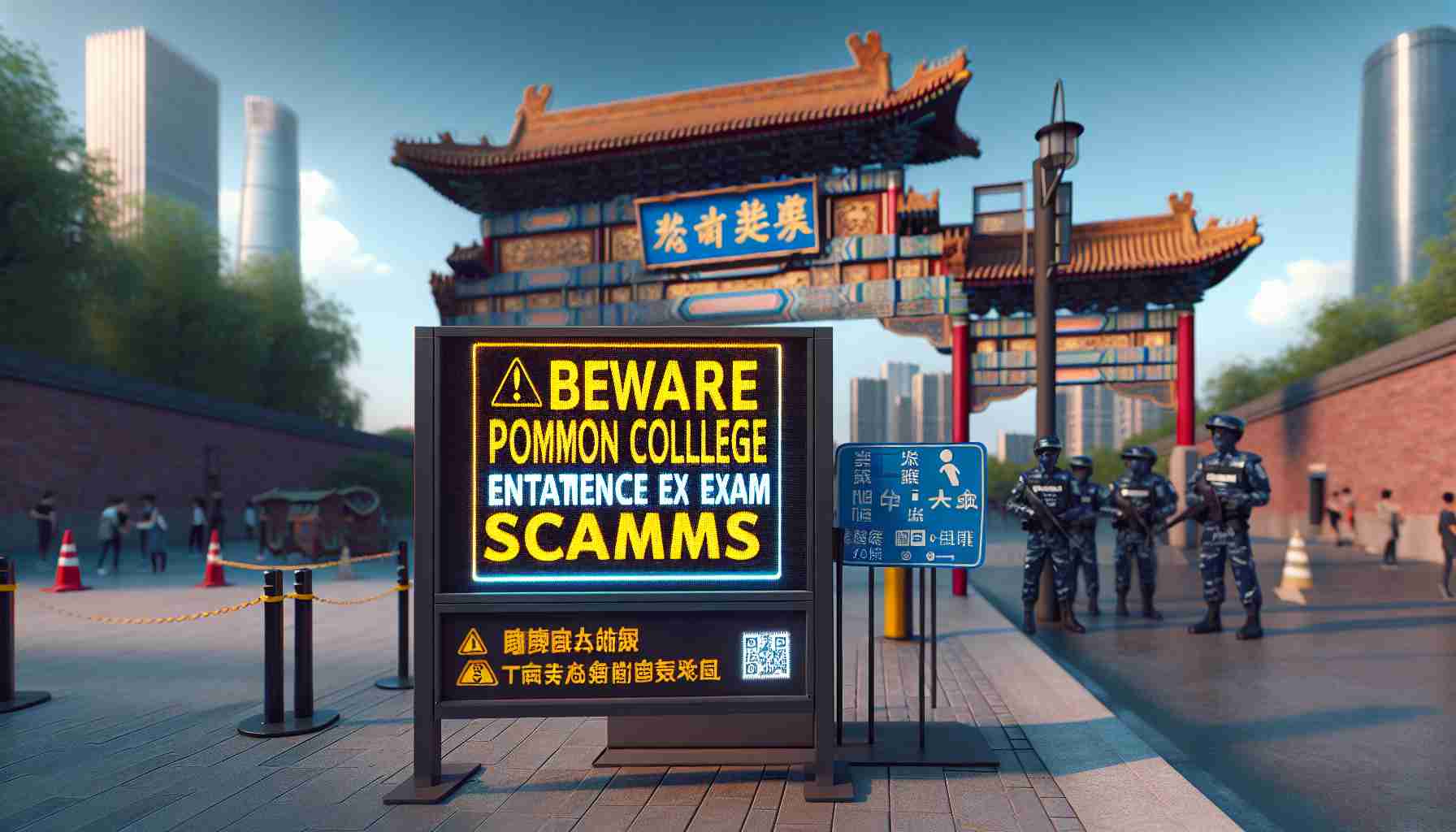Alert for College Aspirants and Parents: Scammers Target Post-Exam Vulnerabilities
In the wake of another year’s college entrance examinations, scammers have launched a new wave of deceitful schemes aimed at students and their families. Beijing police have dissected the prevalent scams that emerge after the exams, urging examinees and their guardians to remain vigilant.
Scoring Scams: A False Promise of Early Results
One deceit involves tricksters disseminating bogus adverts through student and parent groups, SMS, and other channels, enticing victims with early score access. These adverts often lead to fraudulent websites that ask for personal details like ID and exam numbers along with a fee. Falling prey to this could lead to loss of money and personal data exposure. The authorities stress the importance of using only officially recommended methods and websites for score checking, avoiding unfamiliar or suspicious links.
Manufactured Admission Letters: A Dangerous Trap
Another scam involves counterfeit admission letters or SMS notifications that con artists send to students, instructing them to deposit tuition fees into specified bank accounts, only for the scammers to vanish after receiving the money. Trust is often gained through official-looking seals, course materials, or false university addresses. Police emphasize the importance of verifying the official university and educational authority websites, ensuring any bank account details match the official ones before making any transactions.
Fraudulent Enrollment Slots: No Shortcut to Education
The third tactic used by scammers involves impersonation and the creation of fake identities to deceive families into believing that they can secure enrollment slots in universities through bribery or inside connections. Families are duped into paying for these non-existent ‘slots’, which are, in reality, nothing more than fraudulent schemes. Authorities clarify that any legitimate enrollment process does not involve additional costs for enrollment slots, and any fees demanded under this pretense are unequivocally a scam.
Protect Yourself Against Post-Exam Scams: What You Need to Know
After the intense pressure of college entrance exams, students and their families can be susceptible to fraudulent activities. Scammers capitalize on the aspirations and sometimes the desperation of candidates seeking admission to prestigious universities. Knowing about common scams can help potential victims avoid being exploited.
The Most Important Questions and Their Answers:
– How can I verify my exam results? Verify exam results only through official examination board websites or approved methods. Do not trust unsolicited messages or emails offering early results for a fee.
– What should I do if I receive a suspicious admission letter? Verify all admission letters with the respective university’s official contact information. Real admission letters will generally not require immediate payment of fees before physically enrolling at the institution.
– Can you buy a legitimate enrollment slot at a university? No, legitimate university admissions are earned through meeting the academic and application requirements of the institution, not through purchases or bribes.
Key Challenges and Controversies:
One of the challenges associated with college entrance scams is the constantly evolving tactics that scammers use, which can trap even vigilant individuals. It is controversial because it preys on individuals during an extremely vulnerable time – right after exams when anxiety about the future is high.
Advantages and Disadvantages:
– Advantages: By being informed about these scams, families can better protect their financial and personal information, avoiding the emotional and financial distress that comes with being defrauded.
– Disadvantages: For those who fall victim to these scams, the consequences can be severe, including financial loss, personal data theft, and the emotional impact of having been cheated, which can also lead to distrust in the legitimate admission process.
For those looking to find more information about protecting themselves from such scams, a reliable source would be the official website of the educational authorities or the universities themselves. It is crucial to only seek information from these trusted sources.
A suggested link for additional resources on higher education and avoiding scams might be the U.S. Department of Education if one is located in the United States. However, for those specifically in Beijing or China, the relevant ministry or educational department’s official website would be the appropriate resource. Always make sure the URL is valid and the site is secure before entering any personal information.
The source of the article is from the blog enp.gr
